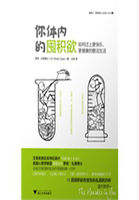The Law reveals guilt, fills the conscience with terror, and drives men to despair. Much less is sin taken away by man-invented endeavors. The fact is, the more a person seeks credit for himself by his own efforts, the deeper he goes into debt. Nothing can take away sin except the grace of God. In actual living, however, it is not so easy to persuade oneself that by grace alone, in opposition to every other means, we obtain the forgiveness of our sins and peace with God.
The world brands this a pernicious doctrine. The world advances free will, the rational and natural approach of good works, as the means of obtaining the forgiveness of sin. But it is impossible to gain peace of conscience by the methods and means of the world. Experience proves this. Various holy orders have been launched for the purpose of securing peace of conscience through religious exercises, but they proved failures because such devices only increase doubt and despair. We find no rest for our weary bones unless we cling to the word of grace.
The Apostle does not wish the Galatians grace and peace from the emperor, or from kings, or from governors, but from God the Father. He wishes them heavenly peace, the kind of which Jesus spoke when He said, "Peace I leave unto you: my peace I give unto you." Worldly peace provides quiet enjoyment of life and possessions. But in affliction, particularly in the hour of death, the grace and peace of the world will not deliver us. However, the grace and peace of God will. They make a person strong and courageous to bear and to overcome all difficulties, even death itself, because we have the victory of Christ's death and the assurance of the forgiveness of our sins.
Men Should Not Speculate About the Nature of God The Apostle adds to the salutation the words, "and from our Lord Jesus Christ." Was it not enough to say, "from God the Father"?
It is a principle of the Bible that we are not to inquire curiously into the nature of God. "There shall no man see me, and live," Exodus 33:20. All who trust in their own merits to save them disregard this principle and lose sight of the Mediator, Jesus Christ.
True Christian theology does not inquire into the nature of God, but into God's purpose and will in Christ, whom God incorporated in our flesh to live and to die for our sins. There is nothing more dangerous than to speculate about the incomprehensible power, wisdom, and majesty of God when the conscience is in turmoil over sin. To do so is to lose God altogether because God becomes intolerable when we seek to measure and to comprehend His infinite majesty.
We are to seek God as Paul tells us in I Corinthians 1:23, 24: "We preach Christ crucified, unto the Jews a stumbling block, and unto the Greeks foolishness; but unto them which are called, both Jews and Greeks, Christ the power of God, and the wisdom of God." Begin with Christ. He came down to earth, lived among men, suffered, was crucified, and then He died, standing clearly before us, so that our hearts and eyes may fasten upon Him. Thus we shall be kept from climbing into heaven in a curious and futile search after the nature of God.
If you ask how God may be found, who justifies sinners, know that there is no other God besides this man Christ Jesus. Embrace Him, and forget about the nature of God. But these fanatics who exclude our Mediator in their dealings with God, do not believe me. Did not Christ Himself say: "I am the way, and the truth, and the life: no man cometh unto the Father, but by me"? Without Christ there is no access to the Father, but futile rambling; no truth, but hypocrisy; no life, but eternal death.
When you argue about the nature of God apart from the question of justification, you may be as profound as you like. But when you deal with conscience and with righteousness over against the law, sin, death, and the devil, you must close your mind to all inquiries into the nature of God, and concentrate upon Jesus Christ, who says, "Come unto me, all ye that labor and are heavy laden, and I will give you rest." Doing this, you will recognize the power, and majesty condescending to your condition according to Paul's statement to the Colossians, "In Christ are hid all the treasures of wisdom and knowledge," and, "In him dwelleth all the fulness of the Godhead bodily."
Paul in wishing grace and peace not alone from God the Father, but also from Jesus Christ, wants to warn us against the curious incursions into the nature of God. We are to hear Christ, who has been appointed by the Father as our divine Teacher.
Christ is God by Nature At the same time, Paul confirms our creed, "that Christ is very God." We need such frequent confirmation of our faith, for Satan will not fail to attack it.
He hates our faith. He knows that it is the victory which overcometh him and the world. That Christ is very God is apparent in that Paul ascribes to Him divine powers equally with the Father, as for instance, the power to dispense grace and peace. This Jesus could not do unless He were God.
To bestow peace and grace lies in the province of God, who alone can create these blessings. The angels cannot. The apostles could only distribute these blessings by the preaching of the Gospel. In attributing to Christ the divine power of creating and giving grace, peace, everlasting life, righteousness, and forgiveness of sins, the conclusion is inevitable that Christ is truly God. Similarly, St. John concludes from the works attributed to the Father and the Son that they are divinely One. Hence, the gifts which we receive from the Father and from the Son are one and the same. Otherwise Paul should have written: "Grace from God the Father, and peace from our Lord Jesus Christ." In combining them he ascribes them equally to the Father and the Son. I stress this on account of the many errors emanating from the sects.
The Arians were sharp fellows. Admitting that Christ had two natures, and that He is called "very God of very God," they were yet able to deny His divinity.















